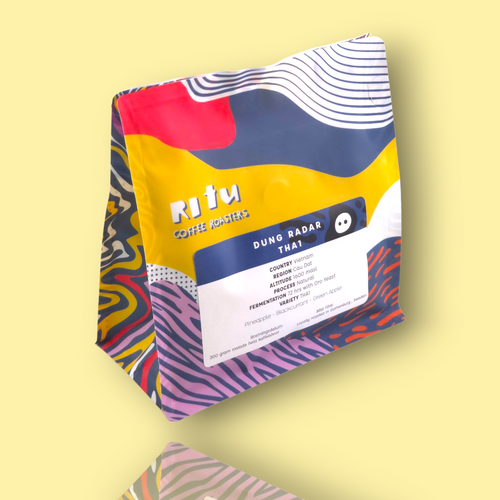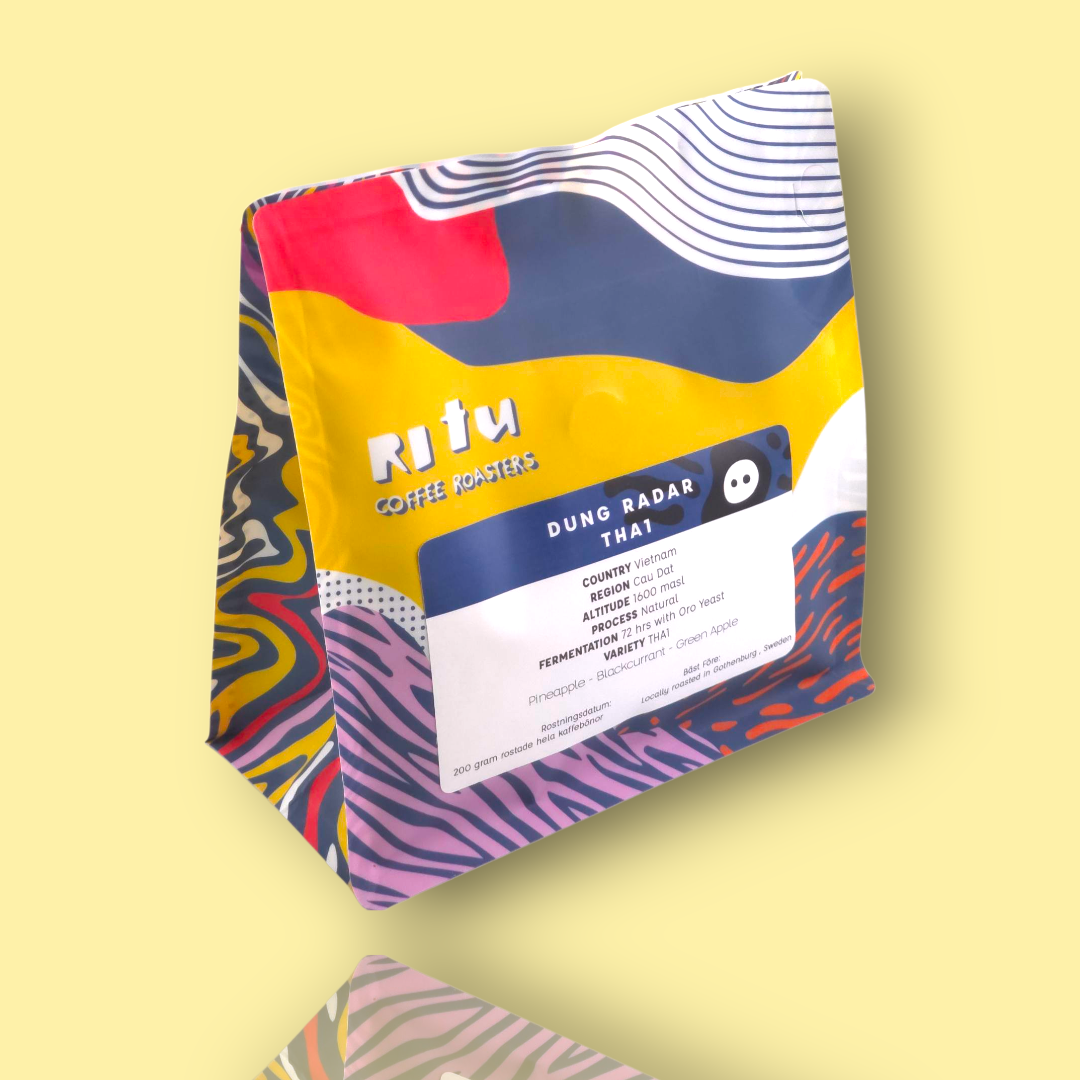Dung Radar Natural - Vietnam - Ritu
Dung Radar Natural - Vietnam - Ritu
Regular price
190 kr
Regular price
190 kr
Sale price
Unit price
/
per
Couldn't load pickup availability

Dung Radar Natural - Vietnam - Ritu
Regular price
190 kr
Regular price
190 kr
Sale price
Unit price
/
per
Region: Cau Dat Vietnam
Farm: Dung RADAR
Variety: THA1
Altitude: 1400-1650 meters
Processing: Anaerobic Natural Processing with 72 hours of fermentation using Oro and Intenso Yeast
Taste Profile: Pineapple, Blackcurrant, and Apple
Dung’s family has a rich history of producing commercial Arabica coffee for nearly 30 years. Growing up in a coffee-producing environment, Dung was deeply ingrained with a passion for high-quality coffee production. After completing his university education in South Vietnam, Dung returned to his hometown to assist his family and eventually started his own coffee production, which is now known as Radar Farm. We were fortunate to connect with Dung and witness his dedication, which inspired us to import the first Vietnamese specialty coffee into Scandinavia in 2019. This lot represents the exceptional outcome of years of hard work and innovative processing.
Varieties: THA1 is the first result of genetic hybridization research in Vietnam. Initially, Typica from Ethiopia was crossbred with Typica from Vietnam, resulting in hybrids TH1 and TH2. However, these hybrids struggled with low yields and poor disease resistance due to Vietnam's climate and soil conditions. Consequently, TH1 and TH2 were further crossbred with the local Catimor variety, leading to the development of THA1.
Processing
During the harvest season, all coffee cherries are selectively handpicked. After sorting, the cherries are washed and fermented. The cherries are then placed in tanks, which are sealed and left to ferment at a low temperature for approximately 72 hours using a blend of specialized Oro and Intenso yeast.
Oro and Intenso Lalcafe yeast (Saccharomyces cerevisiae) were specifically developed for coffee production after four years of research and trials. These trials, conducted across various regions and environments, demonstrated the yeast's ability to control the fermentation process effectively and enhance cup quality. The yeast's resilience at low temperatures makes it suitable for use across different altitudes. It helps prevent spoilage by controlling unwanted microorganisms while promoting the fresh, fruity characteristics of the coffee beans. The extended fermentation period allows the beans to absorb metabolites, enhancing flavors and bringing out complexity, acidity, brightness, and floral notes.
After fermentation, the coffee is dried on raised beds in a greenhouse for 27 days.

